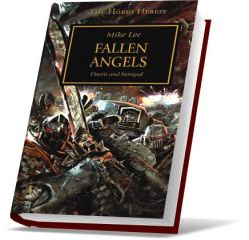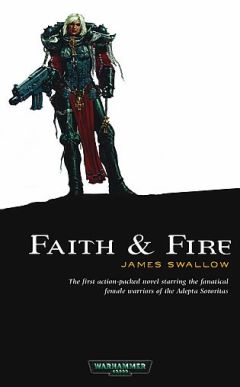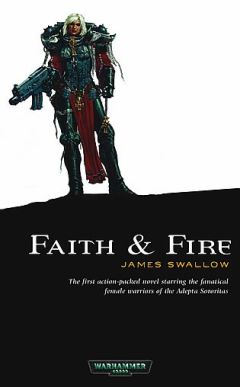Пользователь - WORLDS END
На сайте mybooks.club вы можете бесплатно читать книги онлайн без регистрации, включая Пользователь - WORLDS END. Жанр: Прочее издательство неизвестно,. Доступна полная версия книги с кратким содержанием для предварительного ознакомления, аннотацией (предисловием), рецензиями от других читателей и их экспертным мнением.
Кроме того, на сайте mybooks.club вы найдете множество новинок, которые стоит прочитать.

Пользователь - WORLDS END краткое содержание
WORLDS END читать онлайн бесплатно
"Not at all," said Robbie. It was a concession on his part.
"So little Hansi is thinking: 'I will play the violin better and better, and then some day, when I meet the wonderful Lanny Budd, he will wish to play duets with me. He will really judge my music, and not as the rich boys do at school, my Jewishness.' That is what my Hansi has said to me; and now, should I smash his dream that the wonderful Lanny Budd might wish to play music with him? Shall I have to hear him say: 'No, Papa, I cannot have Lanny Budd for a friend, because his father says that you are not honest in business, that you took advantage of him when he trusted you'? So you see, Mr. Budd, I should have to go straight, even if it was against my nature."
"A new kind of business credentials, Mr. Robin!" said the other, smiling. "How much money would you say you could use to advantage in this business?"
"It is hard to know in advance. You understand that the buying will always be a spot-cash proposition. I would say a hundred thousand dollars should be in the bank. I would report to you what I am doing, and if I saw a use for further sums, you could judge each proposition on its merits."
Robbie had never told his son just how much money he had made in the last few years; so Lanny was startled when his father said: "I guess I could find a hundred thousand without too much trouble. You give me the references you speak of, Mr. Robin, and I'll look into them, and if they are what you tell me, I'll take a flier with you."
Lanny was pleased, but he didn't say so until they had dropped the dealer at his hotel. Then he chuckled and said: "You're in the junk business, Robbie!"
27
The Federation of the World
I
THE Peace Conference had begun its sessions. They had long debates as to whether they should debate in the English language or the French, and finally decided that they would use both, and have everything translated back and forth. They had a bitter controversy over the question whether they were going to try the Kaiser for his crimes; they had solemnly announced that they would do so, but the Kaiser was in Holland, which wouldn't give him up, and gradually the debate petered out - there were so many more urgent problems. Their armies were costing several million dollars a day, and so many women wanted their men back home!
President Wilson had set it as the first item on his program to establish a League of Nations and get it going. Everything else depended upon that, for without it you couldn't be sure that any arrangements you made would last a year. Premier Clemenceau had publicly sneered at the idea; what he believed in was the "balance of power" - which meant a group of nations strong enough to lick Germany. He and the President were now meeting daily, testing out each other's sparring power; meanwhile the American professors had to live upon scraps of gossip. Was it the Premier or the President who had been frowning when they emerged from the conference room that day?
The guessing grew hot when the problem of a League of Nations was assigned to a commission. That, obviously, represented Clemenceau's effort to shelve and forget it. But Wilson countered by appointing himself as one of the American members of the League of Nations Commission. Naturally he became chairman of it, since it was his idea and his hobby; when he began attending its daily sessions, he hadn't time to attend any other sessions, and so Clemenceau was left to fume and fret. The Americans rubbed their hands with delight. The Big Chief was really going to fight!
Everybody in the American staff began talking League. Even those who were supposed to be busy on other assignments couldn't keep their fingers out of the pie. Such a colossal enterprise, the most momentous in history! The poet Tennyson had sung about "the Parliament of Man, the Federation of the World," and all these professors had learned the verses in school. How much of sovereignty was each nation to part with? What representation was each to have? Should the little ones have equal power with the big ones? And what about the colonial peoples? What about the national minorities?
President Wilson had a draft of the League somewhere among his baggage. Several members of "The Inquiry" had their drafts. The British, having an "Inquiry" of their own, had prepared a layout, of which a prominent feature was that each of the British dominions should count as a separate nation and have its own delegates. The French had a plan, of which the most important feature was an international army, to make sure that Germany could never again invade France. All these plans had to be put together, in spite of their being incompatible.
II
Lanny Budd had been assigned to a room on the top floor of the Crillon, on the courtyard, along with two other secretaries. But after a couple of weeks the three were moved out to a near-by hotel, to make room for more important persons who kept arriving from America. However, Lanny still had his meals in the hotel dining room, because Professor Alston wanted him. Under the regulations he was allowed to have one guest each day. He would invite his father to meet the staff and convince himself that they were not so tender-minded as they had been imagined. He would give his mother a chance to exercise her charms upon a susceptible group of gentlemen a long way from home and not having much opportunity to enjoy feminine society.
It had been only a little more than six months since Marcel had disappeared into the furnace of war; but Beauty's grief was less, because, as she explained to Lanny, she had suffered so much of it in anticipation. This suffering had given her dignity, without depriving her of those weapons of earlier days. She was still on the good side of forty, and deducted a couple of years more in her thoughts about herself. She couldn't very well deduct more, with a son seated at her side, several inches taller than herself!
Beauty was far too much a woman of the world to pretend to knowledge before these professors; she chose the line of calling herself an ignoramus and deploring her wasted youth. "Oh, Professor Alston," she would exclaim, "do make these wonderful ideas of yours work, so that we women in Europe won't have a nightmare pouncing down on us every generation!" It was an old practice of hers, in dealing with the male sex, to ask each about his own work, listen attentively, and express admiration. This proved as effective with scholars as with those of higher station, and Beauty might have eaten all her meals at the expense of the United States government if she had cared to accept the invitations showered upon her.
She told these learned ones about her friend Emily Chattersworth, and many of them knew the name; the older ones remembered the banking scandal, back in the bad old days when pirates had sailed the high financial seas. Mrs. Emily had rented a town house, and had teas every Thursday, and a salon on a modest scale on Sunday evenings; with her permission, Beauty invited Lanny's chief, and he went, and met important people: a member of the French cabinet, or a general just returned from service in Salonika; an English statesman who had flown from London that afternoon, or a Russian grand duke who had escaped from the Bolsheviki by way of Siberia and Manchuria. A youth who had access to social opportunities such as these was considered an unusually good secretary.
III
One of the persons whom Lanny saw most frequently was George D. Herron. This prophet of the new day came to see Alston, and they talked, and Lanny listened. Herron seemed to take a fancy to the youth, perhaps thinking of him as a possible convert. They sat on a bench by the embankment of the Seine, and the older man interpreted the events of the time in accordance with his peculiar ideas.
The only Socialist Lanny had met so far was that editor who had taken such unfair advantage of a boy's indiscretion. It appeared that Herron had called himself a Social-Democrat a couple of decades ago, and had helped to found the Socialist party in the United States; but the war had brought a violent reaction, and Social-Democracy was now in his mind a part of "Germanism," the archenemy of the soul of man. It based itself upon materialism, denying freedom and respect for the personality. Herron's vision was of a society transformed by brotherhood and love; he found those qualities embodied in Jesus, and that was why he called himself a Christian Socialist, even while rejecting the dogmas of the churches.
On this subject he talked with the fervor of the prophets of old. For him all thinking led to the basic question whether mankind could be saved from sliding into an abyss of barbarism, a new Dark Age of materialism and hate. The late war had brought us close to the edge, and new wars now on the horizon might carry us over. He pointed to the fall of empires throughout history; what was there to save us from a similar fate? Only a vision of spiritual things which a few great souls had caught, and for the sake of which they had martyred themselves and must continue to do so.
To this tormented soul the League of Nations represented the one hope of preserving justice and peace in the world, so that the higher faculties of man might survive and be propagated. In the spring of the previous year he had written President Wilson an urgent letter on behalf of the project, and a considerable correspondence had resulted. In Paris, Wilson showed him his draft of the League, and asked his suggestions. This was known to the advisory staff, who looked upon this strange interloper with a mingling of curiosity and alarm. Perhaps he wasn't a scandalous person, but all America believed him to be that - and what would America say as to the sort of company its college professors were keeping in Paris?
It happened that Robbie Budd came to lunch and sat at table with Herron, Alston, and Lanny. The black-bearded prophet was in his most apocalyptic mood. Said he: "The salvation of the world from Germanism depends upon the salvation of Germany from her ancient barbarian self. The final value of our military success, the proof that we are worthy of it, must lie in its redemptive power. We have won a victory over the German people and we have now to win the German people to that victory. What we do must be infused by such spiritual purpose as will enable the German people to see the divine reason for it, and to enter co-operatively into the judgments and workings of that reason."
When Lanny had been alone with his new acquaintance, listening to such words, he had been much impressed; but now he heard them through the ears of his skeptical father and they made him wriggle uncomfortably. Robbie was a self-contained man, and knew how to keep quiet when he wanted to; but when he was alone with his son, he exclaimed: "My God, who is that nut?" When Lanny told him that the fervid orator was one of President Wilson's trusted advisers, Robbie was ready to go home and tell America that it was being governed from a lunatic asylum. The United States Senate - now safely under control of the Republican party - ought to send a committee to Europe to take charge of the peace-making!
Of course Robbie couldn't expect to keep his son in cotton wool. Lanny was in the world now and had to meet crackpots and fanatics along with sane businessmen. But at least he was going to have his father's advice. In detail, and with as much conscientiousness as any Christian Socialist, Robbie explained that the ruling class of Germany had tried to grab the trade privileges of the British Empire, and had failed. They would try again whenever they got the chance; it was life or death for one group or the other, and would continue to be that so long as men used steel in making engines, and coal and oil - not hot air - to run them with. Lanny listened, and decided that his father was right, as always.
IV
It was a time of strain and anguish, and really it wasn't easy to know what to think or do. Lanny had shared in his own soul the griefs of the people of France and could understand their dread of a wicked government which had inflicted them. For Lanny the soul of France was embodied in the memories of his stepfather; and always he tried to imagine, what would Marcel have felt about the peace-making and the various problems which kept arising in connection with it?
One thing seemed certain: Marcel would not have approved the deliberate starving of women and children. The Germans had assumed that the blockade would be lifted when they signed the armistice; but the French had no such thought. Nothing was to go into Germany until she had accepted and signed the peace terms which France meant to lay down. But the treaty wasn't ready yet, and meanwhile children were crying with hunger.
To the members of the American delegation this seemed an atrocious thing. They protested to the President, and he in turn to Clemenceau - but in vain. Herbert Hoover, who had been feeding the Belgians, wanted also to feed the defeated peoples; he did finally, as a great concession, get the right to send a relief mission to Austria - but nothing to Germany. Marshal Foch stood like a block of concrete in the pathway. Lanny saw him coming out from the conference room where this issue was fought over; a stocky little man with a gray mustache, voluble, talking with excited gestures, demanding his pound of flesh. He was commander-in-chief of the Allied armies and he gave the orders. A singular thing - he was a devout Catholic, went every morning to mass, and kneeled to a merciful redeemer who had said: "Suffer the little children to come unto me, and forbid them not." Little French children, of course; no little German children!
This was one of the things which tormented Herron. He talked incessantly about a "Carthaginian peace," such as the Romans had imposed when they razed a great city to the ground and drove its population into exile. If France imposed a peace of vengeance upon Germany, it would mean that "Germanism" had won the war; it would mean that France had adopted Germany's false religion, and that the old France of the Revolution, the France of "liberty, equality, fraternity," was no more. The black-bearded prophet suffered so over the hunger of the blockaded peoples that he couldn't eat his own food.
He would come to the Crillon to consult with Alston, whom he trusted because he had known him as a lad. A sense of agonized impotence possessed him; to see the world drifting to shipwreck, and know what ought to be done, but be helpless to get it done; to give advice and have it accepted - but not acted upon. To see intrigue, personal jealousy, factional strife, blocking the hopes of mankind. There was all that sort of thing at the Crillon, of course; there were those who had the President's ear, and others who sought to get it, and pulled wires and flattered and fawned. There were some who were not above repeating scandals and raking up old tragedies. "Of course I'm a marked man," said Herron. "I cannot be recognized publicly; but that doesn't change the fact that I know Europe better than any of those whom the President is meeting."
V
Many times in these days Lanny had occasion to recall the words which the Graf Stubendorf had spoken, concerning "the dark cloud of barbarism in the eastern sky." In five years that cloud had spread until it threatened to cover the firmament; it was of the hue of Stygian midnight, and its rim was red and dripping a bloody rain. No longer the Russian Tsar with his Cossacks and their whips, no longer Pan-Slavism with its marching hosts, but the dread Bolshevism, which not only formed armies, but employed a new and secret poison which penetrated the armies of its enemies, working like a strong acid, disintegrating what it touched. A good part of the secret conferences going on in Paris had to do with this peril and how to meet it. There were some who thought it made no difference what decisions the Peace Conference took, because it was all going to be swept away in a Red upheaval throughout Central Europe.
Похожие книги на "WORLDS END", Пользователь
Пользователь читать все книги автора по порядку
Пользователь - все книги автора в одном месте читать по порядку полные версии на сайте онлайн библиотеки mybooks.club.



